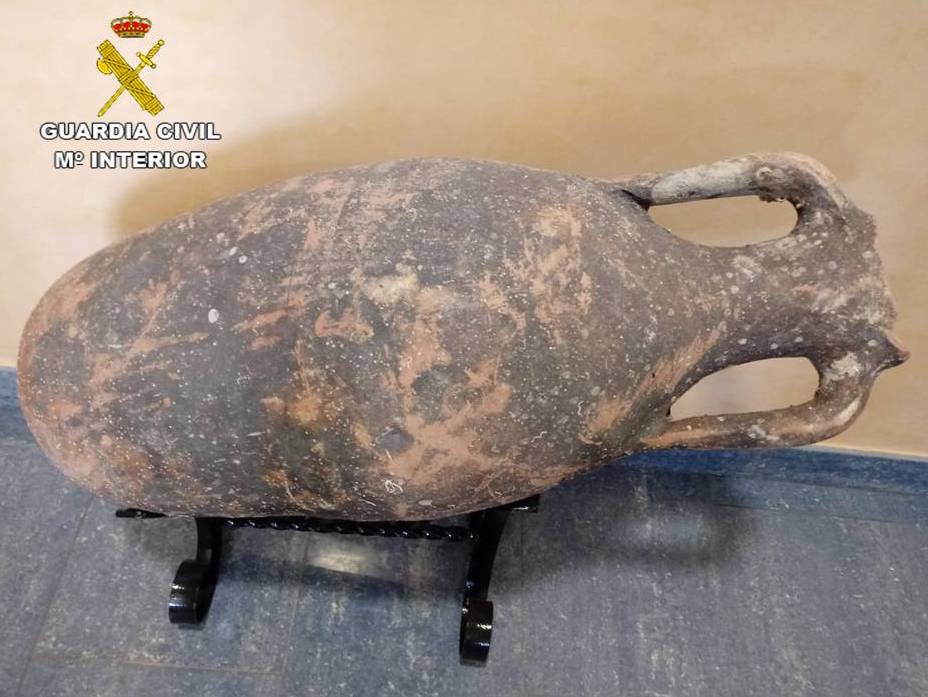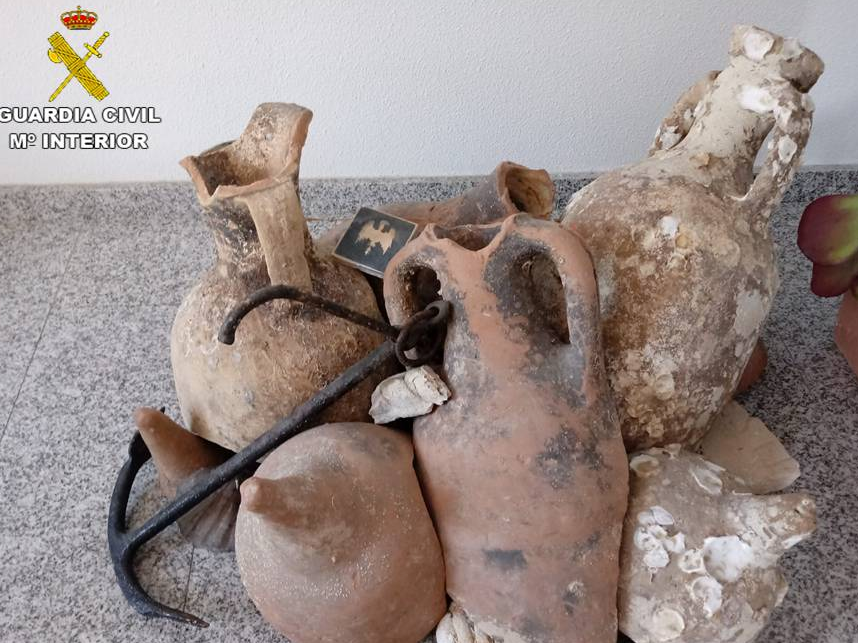Collection of 2,000-year-old Roman amphoras discovered by Spanish police in Alicante seafood shop
Fishmonger’s son claims he found collection of ancient vessels while fishing in the Mediterranean
Your support helps us to tell the story
This election is still a dead heat, according to most polls. In a fight with such wafer-thin margins, we need reporters on the ground talking to the people Trump and Harris are courting. Your support allows us to keep sending journalists to the story.
The Independent is trusted by 27 million Americans from across the entire political spectrum every month. Unlike many other quality news outlets, we choose not to lock you out of our reporting and analysis with paywalls. But quality journalism must still be paid for.
Help us keep bring these critical stories to light. Your support makes all the difference.
An astonishing collection of Roman pots thought to be almost 2,000 years old has been found by police while conducting a routine inspection at a fish monger’s shop in Alicante, Spain.
The vases — known as amphoras — are large pointed-bottom containers and were used for transporting liquids such as olive oil and wine.
The collection could be “of great heritage value” and one of the amphora could be of “significant importance, due to its exclusivity”, according to Spain’s Guardia Civil.
The force said it is now investigating the owner of the fish shop and his son as “alleged perpetrators of a crime against historical heritage”.
However, according to Spanish newspaper La Vanguardia the owner’s son said he found the pots while fishing, and brought them to his father’s shop to help decorate it.
Spain’s Guardia Civil said after the find, which came during a standard inspection of the storage and marketing of frozen fish products, the collection of objects was transferred to the local Santa Pola Sea Museum for safekeeping and authentication.
There, a more exhaustive survey of the pieces was carried out. This, the force said, determined “in a preliminary manner, by different experts in the field, that they were a total of 13 Roman ceramic amphoras, possibly from the 1st century, which are found in different states of conservation, in addition to a metallic anchor, foreseeably from the 18th century and a limestone plaque with the inscription ‘ESTE’”.
The Guardia Civil said the experts concluded the amphoras could have come from the looting of wrecks and could be protected under marine heritage laws.

They also suggested these would have been olive oil amphoras, which were used to transport the highly traded commodity from the peninsula to the key Roman transport hub Portus Ilicitanus (today known as Santa Pola), for transfer to Rome.
Other similar amphoras were also used to transport wine and fish sauces, the police said.
“Due to the morphology they presented, they could be amphoras dedicated to the storage and transport of these products.”

The Civil Guard said they had launched proceedings against the fishmonger and his son as the alleged perpetrators of crime against historical heritage and the acquisition or possession of objects knowing their doubtful or illegal origin.
Subscribe to Independent Premium to bookmark this article
Want to bookmark your favourite articles and stories to read or reference later? Start your Independent Premium subscription today.

Join our commenting forum
Join thought-provoking conversations, follow other Independent readers and see their replies
Comments